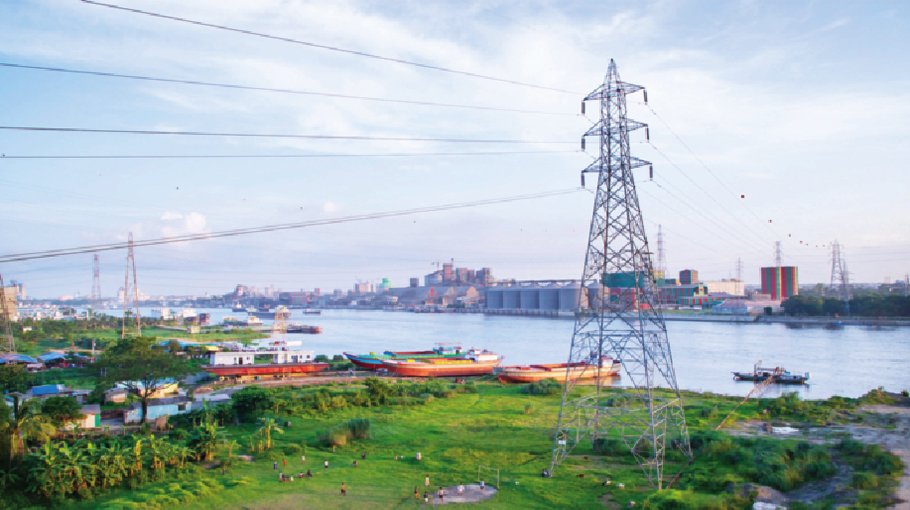Power price hike again in March
Summer load-shedding threat looms

The country is going to face another increase in electricity rates, marking the second hike within twelve months.
State Minister for power, energy and mineral resources Nasrul Hamid hinted at a potential rise of up to 4% for both bulk and retail electricity prices, bringing the new rate to Tk 8.58 per unit in March this year.
This decision follows a 5% increase in March 2023, when the weighted average price reached Tk 8.24 per unit.
However, budgetary limitations and fuel supply uncertainties threaten the power industry with summer load-shedding. Concerns linger about foreign currency availability for bill payments and energy imports, despite price hikes intended to ease financial burdens.
The government attributes this move to fluctuations in coal and dollar prices, hindering its plan to utilize cheaper coal and reduce production costs. Discussions among officials aim to minimize the impact on lifeline customers.
Awami League’s General Secretary, Obaidul Quader, expressed concern on Saturday about excessive subsidies in the power sector, emphasizing the need for gradual reduction. He underscored the importance of managing subsidies effectively to sustain electricity facilities amidst increasing power generation capacity.
Quader referring to BNP regime said, ‘Those who were in power had load shedding for 18 hours a day and increased electricity prices nine times in five years. We have provided 100% of the electricity. Sheikh Hasina’s government has increased the power generation capacity to 29 thousand 700 megawatts.’
Asked about the steps to raise the power tariff, Nasrul said on Tuesday that the government will have to raise the price because its plan to lower the cost of production by burning cheaper fuel coal did not work because of a rise in the dollar price.
The exchange rate of the dollar was Tk 75 when the government approved several coal-fired power plants. Now the dollar is priced between Tk 110 and Tk 115. Coal prices are also fluctuating. Nasrul said a power price hike at the rate planned by the government will not affect lifeline customers. “We will finalise the decision in such a way that its effects will be limited to the customers who use power the most,” he said.
When compared to what is currently supplied—roughly 10,000 MW—authorities predict that by April, the hottest month, they will need to increase power supply by 75%.
Due to the fuel crisis, load-shedding in Bangladesh during the previous summer exceeded 3,000 MW on numerous days when the maximum temperature reached 40 °C.
Sources said, the Power Development Board (PDB) faces funds crunch and foreign currency reserves, complicating settlements with domestic power plants. While further price hikes are considered to alleviate financial strains, uncertainties in foreign currency inflows raise load-shedding fears for the upcoming summer.
Officials stress that the country’s generation capacity is sufficient to meet demand but cite fuel shortages in coal, LNG, and fuel oil as significant hurdles. Despite previous price hikes, consumers have endured load-shedding due to fuel unavailability, particularly during peak demand periods.
Plans for a phased increase in electricity prices are on the table, aiming to offset subsidies and ensure financial sustainability.
The director general of Power Cell, Muhammad Hossain, warns of possible load-shedding if fuel shortages continue and emphasizes the significance of production scheduling to meet peak demand. The government’s inability to ensure that load-shedding will not happen this summer highlights the country’s dollar crisis.
According to him, Power Cell had a plan outlining how much power would be produced with what fuel when the demand for electricity peaked in April at 17,500 MW.
Load-shedding has already commenced in rural and urban areas outside Dhaka, with the possibility of extensive outages reminiscent of last year. The reliance on gas for electricity generation exacerbates challenges, with fuel import uncertainties threatening power plant operations.
While coal power plants offer potential relief, operational hurdles persist due to financial constraints and import challenges. Experts stress the need for sustainable solutions to balance financial pressures and ensure affordable electricity for consumers.
As stakeholders struggle with financial strains and fragile dollar supply, the imperative remains to seek long-term solutions to safeguard Bangladesh’s power sector stability amidst ongoing challenges.



